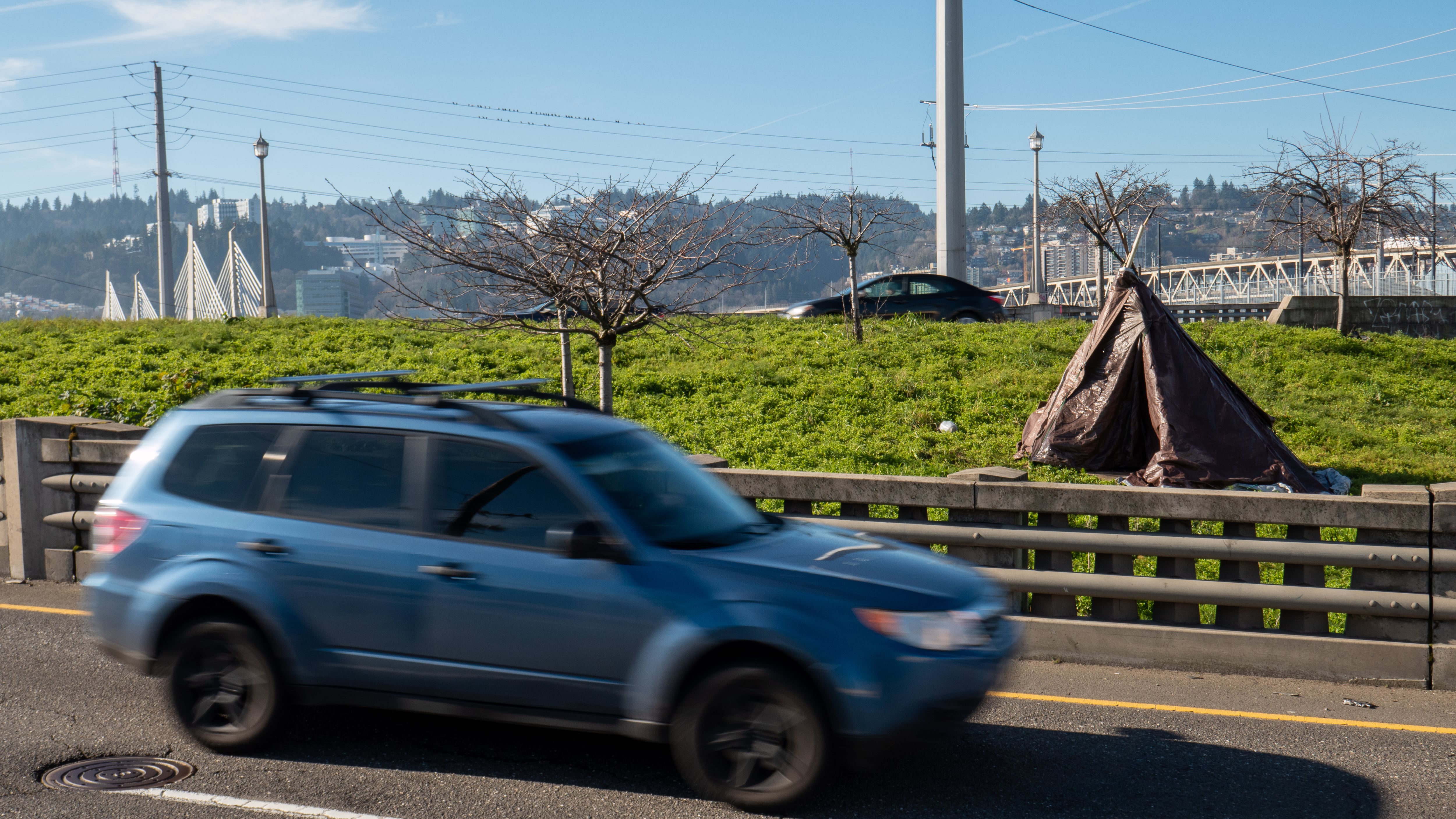For much of the weekend, Portland’s progressive advocates and elected officials condemned or dismissed as fanciful a memo by mayoral aide Sam Adams suggesting the city eliminate unsanctioned camping on the streets and send homeless people to three mass shelters staffed by the Oregon National Guard.
But the opinion that matters to Adams is that of his boss, Mayor Ted Wheeler. In a statement Monday, Wheeler did not condemn Adams’ plan, as other Portland City Council members did.
Instead, Wheeler said inaction was the real matter worthy of outrage.
“Allowing for dangerous, squalid living conditions is not how we treat our houseless community with compassion and empathy,” Wheeler tells WW. “I directed my team to leave no stone unturned in finding a solution that will address this problem in an urgent and meaningful way—and that is exactly what they have been doing. The current solutions do not match the scale of our problem.”
Also on Monday, Commissioner Mingus Mapps called Adams’ proposal an “overcorrection” to the “current hands-off approach” that “has failed everyone.” “There are ethical and effective solutions between internment and anarchy, but policymakers need to honestly face the issue,” Mapps added.
On Friday, WW reported the Jan. 31 memo written by Sam Adams, a top aide to Mayor Wheeler, that outlined his idea to end homeless camping across the city and compel campers to move into three emergency shelters, each with the capacity to hold 1,000 people a night.
Adams characterized his own notes and ideas as startling in the document, obtained by WW.
“I understand my suggestions are big ideas. I imagine it will startle some,” Adams began in his eight-page memo. “Only these four governments working closely together, and we solve these issues. Our work so far, mine included, has failed to produce the sought-after results.”
Adams details a joint “recovery plan” by Metro, Multnomah County, the city of Portland and the governor’s office that would launch on June 1, 2022, and aim to “end unsanctioned camping and clean up the city.”
Over the weekend and on Monday, several elected officials offered their thoughts on the proposal.
Commissioner Carmen Rubio told WW, “That idea would never fly with us—and if true, I hope that would be a nonstarter for the mayor.”
Fellow Commissioner Jo Ann Hardesty echoed Rubio: “Based on what has been reported, this half-baked plan is a nonstarter.”
Margaux Weeke, a spokeswoman for Commissioner Dan Ryan, says he “remains opposed to the concept of mass encampments with inadequate services. Commissioner Ryan supports a trauma-informed approach toward houselessness in Portland.”
Weeke did not say whether Ryan knew about the memo, but when Adams initially emailed his notes on Jan. 31 to various offices, two of Ryan’s policy staff were included on the recipient list.
On Friday, Adams told WW the governor’s legal team was reviewing some of the concepts laid out in the memo. The governor’s office says it’s not considering the plan due to “a number of unanswered legal, logistical and financial questions.”
Multnomah County Chair Deborah Kafoury declined to comment.
This article was published with support from the Jackson Foundation, whose mission is: “To promote the welfare of the public of the City of Portland or the State of Oregon, or both.”

